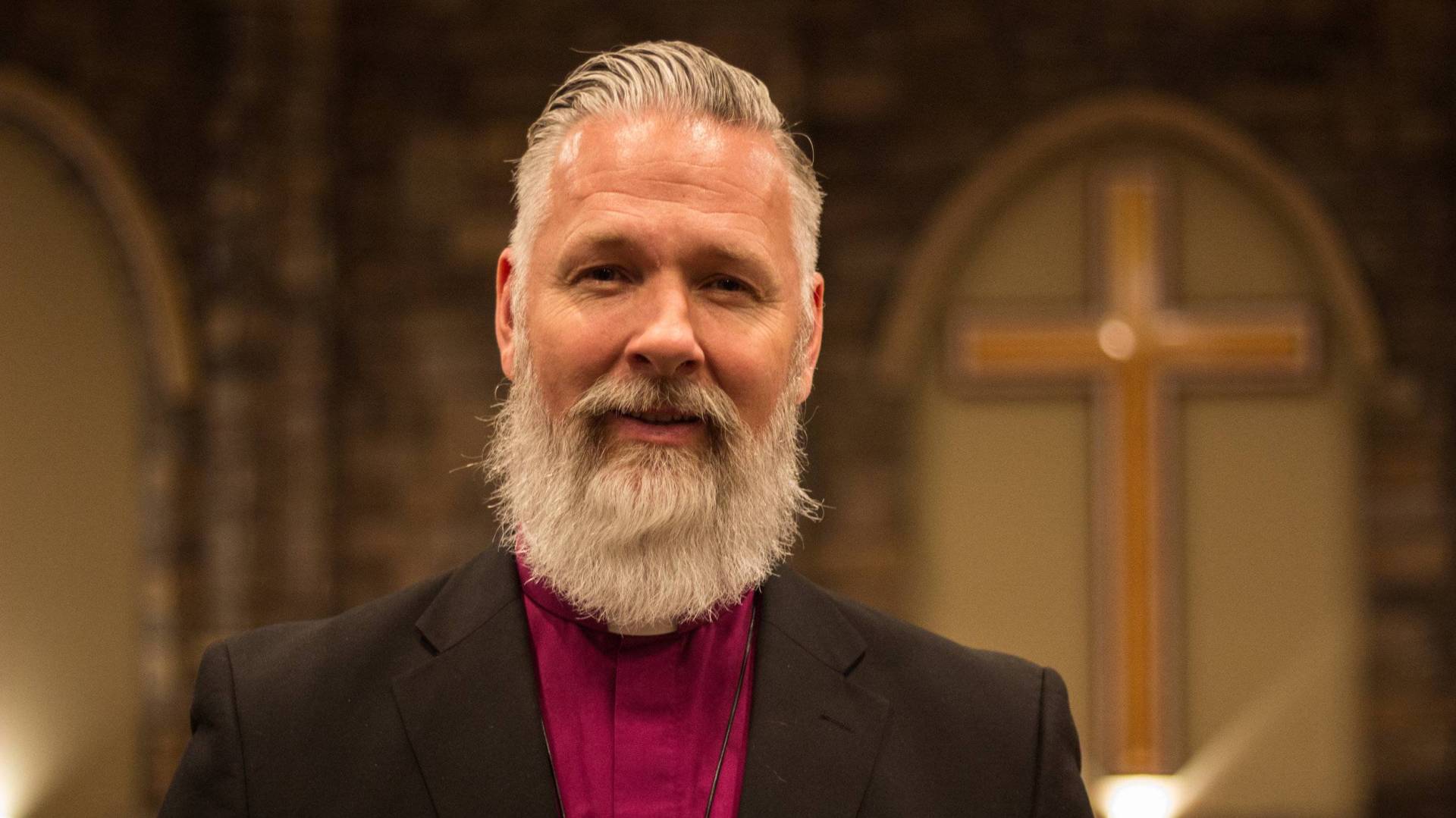Nearly three years ago, Bishop Stewart Ruch of the Anglican Church in North America’s Diocese of the Upper Midwest admitted “regrettable errors” in handling sexual abuse allegations against a lay minister, before taking a leave of absence. An acting bishop took over the diocese and another ACNA bishop, Todd Atkinson, was tapped to assist him.
But Ruch’s absence hasn’t quelled the simmering controversy in the diocese, a sliver of the small, theologically conservative denomination that split from the Episcopal Church and the Anglican Church of Canada in 2009 over those two denominations’ acceptance of LGBTQ clergy and marriage for same-sex couples.
On Monday, a group of ACNA clergy published an open letter expressing concern that there have not been public updates about a promised church trial for Ruch since November 2023. The letter pushes for regular updates on the trial’s progress and for information about why Ruch has not been inhibited, or limited in his duties, because of his alleged laxity in the past.
On the same day, Atkinson, the assisting bishop, was removed from ordained ministry after a church trial found he had engaged in inappropriate relationships with women and interactions with minors.
Atkinson’s misconduct dates back to at least 2012, six years before he joined ACNA, according to the church court’s order. In 2014, Atkinson began overseeing a Canadian church planting initiative called Via Apostolica that was later grafted into ACNA’s Diocese of the Upper Midwest in 2020. The church court found Monday that Atkinson repeatedly fostered exploitative relationships with multiple women under the guise of being their “spiritual father.”
According to the court order, Atkinson often gave women extravagant personal gifts worth hundreds of dollars, sometimes with funds from accounts maintained by Via Apostolica. Financial reports show that from fall 2013-2014, Atkinson spent more than $10,000 on gifts for pastors and their wives, including the women he behaved inappropriately with, according to the order.
Evidence submitted for the trial shows that Atkinson texted women incessantly, sending one more than 11,000 text messages over four months in 2015. The woman reported that Atkinson attempted to give her a ring and family heirloom without his wife’s knowledge, and after church leaders barred him from communicating with the woman, he had a third party deliver 80 pages of his handwritten journal entries to her.
Part of the evidence for the trial included a 2016 report that found Atkinson had taken part in a “codependent” and “excessive” relationship that had the “appearance of evil,” according to the order. Atkinson reportedly targeted women with a history of trauma or abuse, initiating “father-daughter” relationships with them while acting as their priest, bishop, and counselor.
“The Court finds credible the testimony from multiple witnesses that the Respondent encouraged a culture where his authority was not to be questioned,” the order says. “The Respondent misused spiritual language to excuse and normalize inappropriate behavior, leveraging ecclesiastical authority in order to coerce, control, and exploit women selected from a similar profile.”
The order also found Atkinson had inappropriate interactions with minors. In one instance, the court found, Atkinson invited a 13-year-old girl to get coffee alone and without her parents’ knowledge, and later hosted her alone for a movie night in his basement. The court said Atkinson’s misdeeds were compounded by the fact that he did not disclose any information about prior complaints against him when he applied to join ACNA in 2018.
Andrew Gross, director of communications for ACNA, applauded the work of the church court. “The Court for the Trial of a Bishop, a group of elected volunteers, did an excellent job producing a sound verdict based upon over 2,000 pages of evidence,” he said, adding, “This case is an example of the Anglican Church in North America structures working well in both the investigative and judicial phases of the process.”
While Atkinson was inhibited from all ministry in June 2022 pending the outcome of his investigation, Ruch decided to end his leave and return to his office in October 2022. He has apparently continued to act as bishop of the Diocese of the Upper Midwest as well as rector of the diocesan headquarters, Church of the Resurrection in Wheaton, Illinois.
The letter also suggests there’s been a lack of transparency about the presentments, or church charges, brought against him by three bishops and one grassroots group of congregants in Minnesota.
“We have done our best to outline the issues without attributing intentional malice to provincial actions nor have we presumed the outcome of the trial,” the authors wrote. “Our concern remains the potential harm done through this process, which has been publicly lamented by many of the survivors. We believe that the church can and should do better.”
As of Tuesday evening, the letter had been signed by 46 ACNA clergy.
Two related open letters were also recently published — one by and for ACNA laity echoing the concerns and requests of the clergy letter, and the other signed by 88 clergy and leaders in the Anglican Diocese of South Carolina, requesting that the church court responsible for adjudicating the presentments against Ruch meet promptly and be transparent about the status and timeline of the trial.
“The fact that Bp. Ruch has not been temporarily inhibited and continues to function in his Diocese and as a member of the College of Bishops in good standing while under two presentments is an affront,” the South Carolina church leaders wrote.
“For too long, our silence has signaled a passive complicity with this travesty.”












